A Compliant Lease Agreement is a legally binding contract between a landlord and a tenant that outlines the terms and conditions under which a tenant will rent property. In Florida, like in other states, having a well-crafted lease agreement is essential for ensuring smooth landlord-tenant relations and protecting both parties’ rights.
The Legal Importance of a Lease Agreement in Florida
Florida law requires that landlords and tenants have clear agreements in place for residential and commercial leases. Without a written lease, the terms of the rental arrangement may be ambiguous, potentially leading to disputes. A compliant lease agreement provides legal protection for both the landlord and tenant by outlining responsibilities, rights, and procedures.
A compliant lease agreement not only prevents misunderstandings but also ensures that both parties follow the rules outlined in Florida’s landlord-tenant laws, such as the Florida Residential Landlord and Tenant Act (Chapter 83 of the Florida Statutes). This act covers issues related to rent, security deposits, lease terminations, and more.
Key Components of a Florida Lease Agreement
For a lease agreement to be considered compliant in Florida, it must include specific components. Below is an overview of the key elements that should be addressed in any residential lease agreement:
Parties Involved
The lease should clearly identify the parties involved, specifically the landlord and tenant(s). This section should include full names and addresses for both parties to ensure there is no ambiguity regarding who is responsible under the lease.Property Description
The lease should include a detailed description of the rental property, such as the address, unit number (if applicable), and any included amenities or services. This ensures that both parties know exactly what is being rented.Lease Term and Renewal Conditions
The lease must specify the length of the lease term (e.g., 12 months, 6 months, etc.) and the renewal conditions. Does the lease automatically renew at the end of the term, or does it need to be renewed in writing? Clarifying these terms can prevent confusion when the lease term ends.Rent Amount and Payment Terms
Rent is typically the most important term in the lease agreement. A compliant lease will specify the amount of rent, the due date, acceptable payment methods, and any penalties for late payments. Florida landlords are allowed to charge late fees, but the fee must be reasonable and specified in the lease.Security Deposit
In Florida, landlords often require a security deposit before the tenant moves in. The lease must state the amount of the deposit, the conditions under which it will be returned, and any deductions that may be made from it (e.g., for damages or unpaid rent). Florida law mandates that the security deposit be returned within 15 days after the tenant moves out, unless there are claims for damages.Maintenance and Repairs
The lease should clearly delineate the responsibilities for property maintenance and repairs. In Florida, landlords are generally responsible for maintaining the property in habitable condition, while tenants are responsible for minor upkeep and cleanliness.Pets and Pet Policies
Many Florida lease agreements include pet policies. If pets are allowed, the lease should specify the types of pets, any additional pet deposit, and the rules surrounding pets (e.g., weight limits, breed restrictions). If pets are not allowed, this should be clearly stated as well.Occupants and Subletting
The lease should specify the maximum number of occupants allowed in the rental property and outline rules regarding subletting. Florida law does not prohibit landlords from banning subletting, but it should be explicitly addressed in the lease agreement.Termination and Eviction Procedures
The lease should detail the procedures for ending the lease, both voluntarily (through notice) and involuntarily (due to non-payment or violations of lease terms). Florida law requires that tenants be given a notice period before eviction can take place, which must be reflected in the lease agreement.Legal Disclosures
Florida requires certain disclosures to be included in the lease, including:
- Lead-based paint disclosures (for properties built before 1978).
- Information about the Florida Residential Landlord and Tenant Act.
- Information on the handling of security deposits and other specific local or state requirements.
The Importance of Written Leases
Although verbal agreements are valid under Florida law, they are far riskier for both parties. A written lease agreement ensures that both the landlord and tenant are on the same page, which is essential in case of a legal dispute. Written contracts are enforceable in court, whereas verbal agreements may be difficult to prove, leading to unnecessary complications.
The Risks of Not Having a Compliant Lease Agreement
Operating without a compliant lease agreement exposes both landlords and tenants to several risks:
Ambiguities in Terms
Without a written agreement, key aspects of the rental arrangement, such as rent payments, responsibilities, and property use, can be unclear. This ambiguity can lead to disputes and confusion.Lack of Legal Protection
A non-compliant or missing lease agreement deprives both parties of the legal protections guaranteed by Florida’s landlord-tenant laws. Without these protections, landlords and tenants may have difficulty asserting their rights.Increased Risk of Legal Disputes
Without clear guidelines set out in the lease, the potential for legal disputes increases. Issues like non-payment, maintenance disputes, or early termination of the lease can escalate into costly and time-consuming legal battles.Financial Consequences
Tenants may not fully understand their obligations, and landlords may struggle to enforce timely payments or property conditions. This misalignment can lead to financial losses for either party, which could have been avoided with a properly drafted lease agreement.
Common Pitfalls to Avoid
While drafting a compliant lease agreement may seem straightforward, there are several pitfalls that landlords should be mindful of:
- Failing to include all required disclosures: Omitting mandatory disclosures, like the lead-based paint warning for homes built before 1978, can lead to legal issues and potential fines.
- Not specifying late fees: Without clear guidelines on late fees, landlords may struggle to enforce payment penalties, or they could be charged excessive fees in violation of Florida law.
- Not addressing property damage: Clearly outlining who is responsible for damages and how they will be assessed or repaired helps avoid confusion when the tenant moves out.
- Overlooking tenant rights: Florida law provides tenants with several rights, including the right to a habitable living space and the right to privacy. Landlords must ensure their leases comply with these rights to avoid disputes or violations.
Best Practices for Creating a Compliant Lease Agreement
Consult a Legal Professional
While templates are widely available online, it’s always advisable to have an attorney with experience in Florida real estate law review your lease agreement. This ensures that all local laws and regulations are met.Use Clear and Concise Language
Ensure that the lease terms are clear and easy to understand. Avoid using legal jargon that may confuse the tenant. The clearer the terms, the less likely it is that misunderstandings will arise.Be Transparent About Fees and Costs
Ensure that the lease clearly outlines all costs associated with renting the property, including rent, utilities, pet fees, late fees, and security deposits. Transparency will help prevent financial disputes.Stay Updated on Florida’s Landlord-Tenant Laws
Florida’s landlord-tenant laws can change over time. Stay informed about legal updates to ensure your lease agreement remains compliant. Regularly review and update your lease terms to reflect any legal changes.

Get a Free Rental Analysis
Want to know how much your home will rent for? We’ll send you a free rental report!
Common Challenges in Maintaining a Compliant Lease Agreement in Florida
While a lease agreement provides the foundation for landlord-tenant relationships, maintaining compliance throughout the lease term can be challenging. From navigating Florida-specific legal requirements to managing tenant disputes, landlords must be vigilant to avoid potential pitfalls.
Challenge 1: Staying Up-to-Date with Legal Requirements
Florida’s landlord-tenant laws evolve over time, with changes influenced by legislative updates and local ordinances. For example, laws regarding security deposits, notice periods for evictions, or even pet policies may be updated, impacting lease agreements. Landlords often struggle to stay current, risking non-compliance.
How to Overcome This Challenge
- Subscribe to Legal Updates: Sign up for newsletters or alerts from legal resources such as the Florida Bar Association or local housing authorities.
- Consult a Property Lawyer: Regular check-ins with a real estate attorney ensure your lease agreements comply with the latest laws.
- Utilize Professional Property Management Services: Property management companies often have in-house legal teams or partnerships to help landlords navigate compliance.
Challenge 2: Managing Security Deposit Compliance
Florida law has strict requirements for security deposit handling. For instance:
- Landlords must disclose, in writing, where the deposit is held (in an interest-bearing or non-interest-bearing account).
- The deposit must be returned within 15 days of the tenant vacating, or landlords must provide written notice of deductions within 30 days.
Failure to comply can result in legal disputes or penalties.
How to Overcome This Challenge
- Use a Dedicated Escrow Account: This ensures transparency and compliance with Florida statutes.
- Provide Timely Notices: Maintain a system to track move-out dates and issue the required notices promptly.
- Document Property Conditions: Use a detailed move-in/move-out inspection checklist, including photographs, to justify any deductions.
Challenge 3: Drafting Clear and Enforceable Terms
Ambiguous language in lease agreements can lead to misunderstandings and disputes. For instance, vague terms about late fees, maintenance responsibilities, or subleasing can create confusion.
How to Overcome This Challenge
- Use Professional Lease Templates: Start with a legally vetted template designed for Florida rentals.
- Avoid Overly Broad Clauses: Be specific when defining terms. For example, instead of saying, “Tenant must maintain cleanliness,” specify, “Tenant is responsible for keeping floors, walls, and appliances clean and free of damage.”
- Review Terms with the Tenant: Before signing, walk tenants through key terms to ensure mutual understanding.
Challenge 4: Handling Evictions
Evictions are a landlord’s most stressful and legally sensitive challenge. Florida law requires landlords to follow strict notice and court procedures. A minor misstep, such as issuing an incorrect notice or skipping required timeframes, can delay the process or result in dismissal of the eviction case.
How to Overcome This Challenge
- Know the Legal Grounds for Eviction: Florida permits eviction for non-payment, lease violations, or end of the lease term. Ensure your lease aligns with these grounds.
- Follow Notice Requirements:
- Non-Payment of Rent: Provide a 3-day notice (excluding weekends and holidays).
- Non-Compliance: Provide a 7-day notice for lease violations, specifying how the tenant can remedy the issue if applicable.
- Termination Without Cause: For month-to-month leases, provide at least 15 days’ notice before the end of the rental period.
- Hire an Attorney for Court Proceedings: Legal representation ensures compliance and protects your interests during eviction lawsuits.
Challenge 5: Addressing Maintenance and Repairs
Florida law requires landlords to maintain rental properties in a habitable condition, including ensuring functional plumbing, heating, and structural integrity. However, disputes often arise over what constitutes “tenant responsibility” versus “landlord responsibility.”
How to Overcome This Challenge
- Define Responsibilities Clearly: Specify in the lease agreement which maintenance tasks the tenant must handle (e.g., replacing lightbulbs, maintaining the yard).
- Respond Promptly to Repair Requests: Florida law allows tenants to withhold rent if a landlord fails to address serious maintenance issues within a reasonable time. Address repairs quickly to avoid such scenarios.
- Maintain Detailed Records: Keep logs of repair requests, responses, and receipts to demonstrate compliance.
Challenge 6: Balancing Pet Policies and Fair Housing Laws
Many landlords in Florida hesitate to allow pets due to potential property damage. However, denying tenants with service animals or emotional support animals (ESA) without proper consideration can lead to violations of the Fair Housing Act.
How to Overcome This Challenge
- Understand ESA Laws: Emotional support animals are not pets, and landlords cannot charge pet fees for them. However, tenants must provide valid documentation.
- Include Clear Pet Clauses: For properties that allow pets, specify rules such as weight limits, additional deposits, or breed restrictions (if permitted by law).
- Consult Legal Experts for ESA Requests: If unsure about a tenant’s ESA request, seek legal advice to avoid discrimination claims.
Challenge 7: Enforcing Lease Terms
Even with a well-crafted lease, enforcing terms can be challenging. Tenants may neglect responsibilities, ignore policies, or delay rent payments.
How to Overcome This Challenge
- Set a Professional Tone from the Start: Conduct thorough tenant screening to minimize risks of non-compliance.
- Communicate Clearly: Use written notices for any lease violations and maintain open communication channels to resolve issues amicably.
- Include Enforcement Clauses in the Lease: For example, specify penalties for unauthorized occupants, late rent payments, or property misuse.
Challenge 8: Navigating Local Ordinances
In addition to state laws, Florida cities and counties may have their own ordinances affecting rental properties. For example, some municipalities have rent control measures or specific short-term rental regulations.
How to Overcome This Challenge
- Research Local Laws: Understand the specific ordinances for your property’s location.
- Consult Local Authorities: Reach out to city or county offices for clarification on any local regulations.
- Partner with a Local Realtor or Property Manager: Professionals familiar with local laws can provide valuable guidance.
Challenge 9: Maintaining Tenant Relationships
Compliance often depends on cooperation between landlords and tenants. Poor communication or a lack of trust can lead to disputes, even if the lease agreement is sound.
How to Overcome This Challenge
- Establish Trust Early: Begin the landlord-tenant relationship on a positive note by being transparent and professional.
- Use Technology for Communication: Platforms like Buildium or AppFolio facilitate seamless communication for repair requests, rent payments, and updates.
- Conduct Regular Property Inspections: Schedule periodic inspections (with proper notice) to address issues proactively while maintaining transparency.
Proactive Strategies for Avoiding Non-Compliance
- Regular Lease Reviews: Periodically review and update your lease agreement to reflect legal changes or lessons learned from past experiences.
- Maintain Accurate Records: Document all interactions, payments, and maintenance activities for legal protection and transparency.
- Engage Professional Assistance: Property managers, real estate attorneys, and local realtors can help you navigate complex compliance issues.

The Benefits of a Compliant Lease Agreement in Florida
A properly crafted and compliant lease agreement offers significant advantages for both landlords and tenants. It fosters trust, minimizes conflicts, and ensures adherence to Florida’s landlord-tenant laws, creating a harmonious rental relationship. In this section, we’ll explore the key benefits of compliance and how it can safeguard the interests of all parties involved.
1. Legal Protection for Landlords
A compliant lease agreement serves as the landlord’s first line of defense in legal disputes. It provides a clear, enforceable document that outlines rights and responsibilities, reducing ambiguity and potential liability.
Key Benefits
- Eviction Process Compliance: In Florida, the eviction process is highly procedural. A lease agreement that aligns with state law simplifies the process if eviction becomes necessary. For instance, clauses specifying rent due dates and late fees provide the basis for legal action in cases of non-payment.
- Mitigation of Penalties: Non-compliance with laws such as Florida Statutes Section 83.49 (security deposits) can lead to hefty fines. A compliant lease ensures adherence to such rules, safeguarding landlords from financial repercussions.
Example: A landlord who fails to return a security deposit on time could face penalties. However, a compliant lease clearly outlining the conditions for deposit retention helps avoid such situations.
2. Reduced Disputes with Tenants
One of the most significant advantages of a well-drafted lease is clarity. By explicitly defining terms, it reduces misunderstandings and prevents disputes that can strain the landlord-tenant relationship.
Key Benefits
- Minimized Miscommunication: Clear language about maintenance responsibilities or pet policies ensures all parties understand their roles.
- Efficient Conflict Resolution: With dispute resolution clauses in place, landlords and tenants can resolve disagreements quickly without resorting to litigation.
Example: A lease agreement that specifies tenants are responsible for yard maintenance eliminates confusion when the lawn isn’t mowed.
3. Financial Security for Landlords
Compliance with Florida’s lease agreement requirements helps protect landlords’ income and assets. Provisions like late fees, security deposits, and maintenance responsibilities contribute to consistent cash flow and reduced financial risks.
Key Benefits
- Timely Rent Payments: Late fee clauses incentivize tenants to pay rent on time, ensuring steady income.
- Property Damage Protection: Security deposit terms safeguard landlords against the cost of tenant-caused damage.
- Accountability for Repairs: Clear maintenance clauses minimize unexpected expenses by holding tenants accountable for minor repairs.
Example: If a tenant causes damage exceeding normal wear and tear, a compliant lease allows the landlord to deduct repair costs from the security deposit.
4. Improved Tenant Retention
A transparent and fair lease agreement creates a positive rental experience, increasing the likelihood of tenant retention. Happy tenants are less likely to seek housing elsewhere, reducing turnover costs for landlords.
Key Benefits
- Trust Building: A lease that adheres to Florida’s legal requirements demonstrates the landlord’s professionalism and integrity.
- Predictability: Tenants value clear expectations and the security of knowing their rights are protected under the agreement.
Example: A tenant is more likely to renew their lease if they feel their landlord has handled maintenance issues promptly and fairly as outlined in the lease.
5. Compliance with Fair Housing and Anti-Discrimination Laws
Adhering to Florida and federal Fair Housing laws protects landlords from potential lawsuits. Lease agreements that include non-discriminatory terms and accommodate emotional support animals (ESA) and service animals ensure compliance.
Key Benefits
- Avoidance of Legal Challenges: A compliant lease helps landlords steer clear of discrimination claims by providing equal housing opportunities to all tenants.
- Enhanced Reputation: Landlords who respect fair housing laws build a positive reputation, attracting quality tenants.
Example: A landlord who includes a specific clause on ESA documentation requirements ensures legal compliance without violating tenants’ rights.
6. Protection Against Unauthorized Modifications
A compliant lease agreement safeguards landlords against unauthorized alterations or uses of the property. For example, tenants may attempt to sublease without permission or make structural changes.
Key Benefits
- Preservation of Property Value: Clear restrictions on modifications ensure tenants do not compromise the property’s integrity.
- Control Over Subleasing: By prohibiting subleasing without approval, landlords maintain control over who occupies their property.
Example: A clause requiring landlord consent for structural changes prevents tenants from installing satellite dishes that may cause property damage.
7. Compliance Encourages Tenant Accountability
A lease that reflects Florida law establishes a sense of responsibility among tenants. They are more likely to adhere to rules when they are clearly outlined and legally enforceable.
Key Benefits
- Adherence to Rules: Tenants are less likely to violate terms, such as unauthorized pets or noise restrictions, when penalties are specified.
- Encouragement of Open Communication: Tenants are more inclined to communicate issues like repair needs when they trust the agreement and the landlord’s professionalism.
Example: A tenant aware of penalties for unauthorized occupants will be deterred from subleasing without the landlord’s permission.
8. Compliance Protects the Landlord’s Business Interests
For landlords managing multiple properties, compliance ensures streamlined operations and reduces administrative burdens. Consistency in lease agreements simplifies property management, from tenant onboarding to lease renewal.
Key Benefits
- Scalable Operations: Uniform, compliant leases across properties enhance operational efficiency.
- Reputation Building: Consistently fair and legally sound practices position landlords as reputable and trustworthy professionals.
Example: A landlord managing several properties in Florida can use a standardized lease template to ensure compliance across their portfolio.
9. Legal Enforcement of Lease Terms
A compliant lease ensures that terms are enforceable in court. If a tenant violates the lease, such as failing to pay rent or damaging property, the landlord has the legal right to seek remedies.
Key Benefits
- Ease of Evictions: Compliance with Florida’s eviction statutes allows landlords to regain possession of their property efficiently.
- Recoverable Damages: Landlords can seek compensation for unpaid rent or property damage based on the terms of a compliant lease.
Example: If a tenant abandons the property without notice, a compliant lease allows the landlord to seek unpaid rent or re-leasing costs.

Best Practices for Drafting and Maintaining a Compliant Lease Agreement in Florida
Creating and maintaining a compliant lease agreement in Florida requires attention to detail, familiarity with state laws, and an ongoing commitment to staying informed about legal updates. This final section outlines actionable best practices to help landlords and property managers draft and maintain legally sound lease agreements while addressing common challenges.
1. Understand Florida Landlord-Tenant Laws
A thorough understanding of Florida’s landlord-tenant laws is the cornerstone of a compliant lease agreement. These laws outline the rights and responsibilities of landlords and tenants, and adherence ensures legal protection for both parties.
Best Practices
- Review Florida Statutes Chapter 83: Familiarize yourself with regulations covering rent payments, eviction procedures, and security deposits.
- Stay Updated: Laws evolve. Keep up with legislative changes to ensure your lease agreements remain compliant.
- Consult Legal Professionals: Engage an attorney familiar with Florida’s rental laws to review your lease template.
Example: If a new law changes notice requirements for eviction, update your lease template immediately to reflect this change.
2. Use Clear and Specific Language
Ambiguity in a lease agreement can lead to misunderstandings and disputes. Drafting a clear and concise lease ensures all terms are easily understood by both landlords and tenants.
Best Practices
- Avoid Jargon: Use plain language to communicate complex legal terms.
- Include Definitions: Define key terms like “normal wear and tear,” “premises,” and “late payment.”
- Be Explicit: Specify timelines, responsibilities, and penalties for non-compliance.
Example: Instead of stating “Pets may be allowed,” specify “Tenants may keep one dog under 25 pounds with prior written approval from the landlord.”
3. Incorporate Essential Clauses
A compliant lease agreement must include specific clauses to address legal requirements and protect landlords’ interests.
Essential Clauses
- Rent Terms: Include the amount, due date, grace period, and late fee policy.
- Security Deposit: Specify the amount, use, and return conditions per Florida Statutes Section 83.49.
- Maintenance Responsibilities: Define who is responsible for specific repairs and upkeep.
- Occupancy Limitations: State the maximum number of occupants allowed in the unit.
- Pet Policy: Outline restrictions, deposits, or fees for pet ownership.
Example: A maintenance clause might state, “Tenants are responsible for replacing light bulbs and air conditioning filters every three months.”
4. Address Common Challenges in Lease Compliance
Landlords often face issues such as vague maintenance responsibilities, disputes over security deposits, or unauthorized alterations by tenants. Proactively addressing these challenges in the lease agreement can prevent future disputes.
Best Practices
- Maintenance: Clearly delineate landlord and tenant responsibilities for property upkeep.
- Security Deposits: Document the condition of the property before move-in using checklists and photos.
- Unauthorized Alterations: Include clauses that prohibit modifications without written consent.
Example: A clause addressing alterations might read, “Tenants may not paint, drill, or install permanent fixtures without the landlord’s written approval.”
5. Leverage Digital Tools for Lease Management
Technology can simplify lease drafting, compliance tracking, and communication with tenants. Digital tools help landlords stay organized and ensure legal requirements are met.
Recommended Tools
- Lease Management Software: Use platforms like Avail or Rentec Direct to draft and store lease agreements.
- Electronic Signatures: Enable tenants to sign leases digitally, ensuring convenience and traceability.
- Automated Reminders: Set up alerts for lease renewals, rent payments, or legal updates.
Example: A landlord can use electronic lease templates that automatically update to reflect Florida’s latest legal requirements.
6. Conduct Periodic Lease Reviews
Regularly reviewing and updating lease agreements ensures continued compliance with evolving laws and best practices.
Best Practices
- Annual Audits: Review lease terms annually or whenever new legislation is introduced.
- Solicit Feedback: Ask tenants about unclear or problematic clauses to identify areas for improvement.
- Seek Legal Advice: Have an attorney review your lease periodically, especially if managing multiple properties.
Example: After Florida introduced stricter regulations on emotional support animals, many landlords updated their pet policies to comply.
7. Educate Tenants About Lease Terms
A well-informed tenant is less likely to violate lease terms. Proactively communicating key provisions ensures mutual understanding and reduces disputes.
Best Practices
- Lease Orientation: Review critical clauses with tenants during the signing process.
- Provide Summaries: Offer a summarized version of the lease highlighting important terms like rent, maintenance, and security deposit conditions.
- Answer Questions: Encourage tenants to ask questions and clarify any confusion before signing.
Example: A landlord could prepare a FAQ document addressing common tenant questions about lease terms.
8. Document Everything
Thorough documentation protects landlords in case of disputes. From tenant communication to property inspections, maintaining accurate records is essential.
Best Practices
- Keep Written Records: Document all interactions with tenants, including maintenance requests and complaints.
- Use Inspection Checklists: Conduct move-in and move-out inspections with tenants and have them sign off on the condition report.
- Store Lease Agreements Safely: Use digital backups to ensure access to lease agreements when needed.
Example: If a tenant disputes a security deposit deduction, photographic evidence and signed inspection checklists provide valuable proof.
9. Promote Fair Housing Compliance
Florida landlords must comply with federal and state Fair Housing laws, which prohibit discrimination based on race, religion, gender, disability, and other protected classes.
Best Practices
- Standardized Screening: Use consistent criteria for tenant screening, such as credit scores and income requirements.
- Avoid Biased Language: Ensure lease agreements do not include discriminatory language.
- Accommodate Disabilities: Comply with reasonable accommodation requests for tenants with disabilities.
Example: A landlord should modify a no-pets policy to allow service animals without imposing additional fees.
Final Thoughts
Drafting and maintaining a compliant lease agreement in Florida is essential for mitigating risks, building trust with tenants, and adhering to legal requirements. By understanding state laws, using clear language, addressing common challenges, and leveraging technology, landlords can ensure their lease agreements are both effective and enforceable.
A compliant lease isn’t just a document—it’s a powerful tool that safeguards the interests of both landlords and tenants, paving the way for successful and harmonious rental relationships. For Florida landlords, the investment in a well-crafted lease agreement pays dividends in peace of mind, legal protection, and tenant satisfaction.
Suggested Helpful links:
How to Ensure Legal Compliance in Property Management in Palm Beach County
The Comprehensive Guide to Legal Compliance in Palm Beach County Property Management
How Market Trends Shape the Perfect Lease Agreement
The Nightmare of Inadequate Lease Agreements in Jupiter, FL
Avoid Legal Pitfalls: How Property Managers Keep Your Maintenance Compliant and Lawsuit-Free



